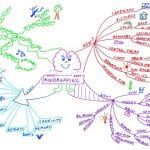“It has made me look, listen and think. Alerted all my senses to hopefully make me a better doctor…”
Learning to Look was located in the Brighton & Sussex Medical School. In conjunction with the Brighton Photo Biennial, LearnHigher and Inqbate CETLs funded a photography course designed to develop medical students’ observation skills. The course used the practice and theory of photography to explore the connections between the skills needed to practice medicine, particularly diagnosis, and those needed to produce photographs. Students were encouraged to analyse the relationship between medicine and art, and to recognise the transferability of their skills across both fields. Continue reading →







